News
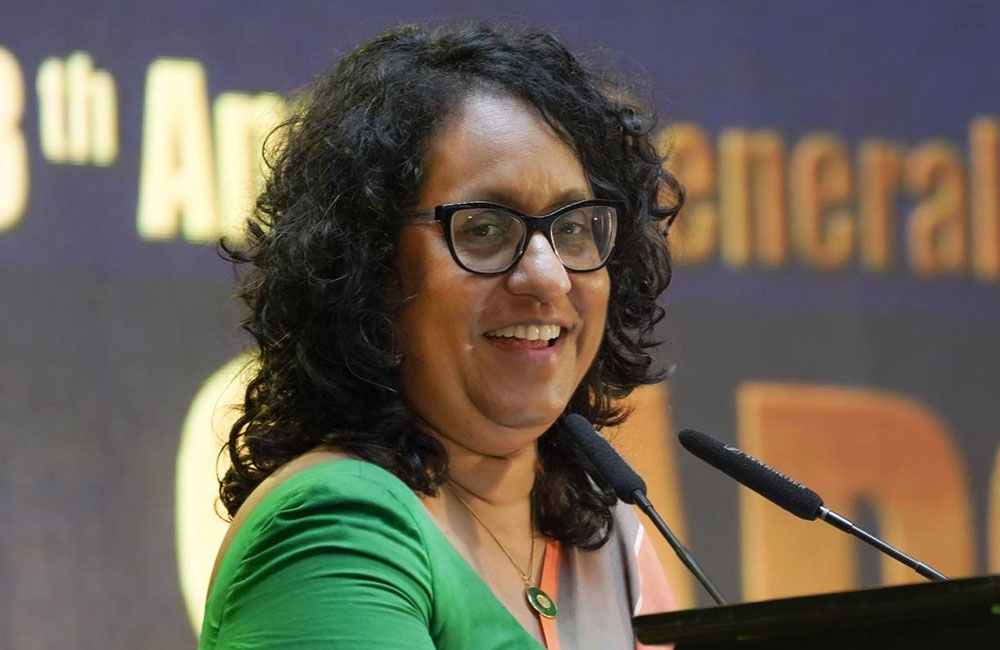
Steps being taken to systematically conduct preschool teacher training and ensure quality standards - PM
Prime Minister Dr. Harini Amarasuriya stated that the Government has commenced necessary measures to maintain preschool education under a framework, align preschool education with a unified curriculum, conduct teacher training in a systematic manner, and ensure quality standards.
The Prime Minister made these remarks today (10) at the Temple Trees, participating in the launch of the National Communication Programme for Child Health Promotion, aimed at promoting social and behavioural change (SBCC) among early childhood children.
The programme is jointly organized by the Health Promotion Bureau, the Ministry of Women and Child Affairs, the Ministry of Education, Higher Education and Vocational Education, UNICEF, and the Clean Sri Lanka Programme.
Addressing at the event, Prime Minister Dr. Harini Amarasuriya stated:
“Early Childhood Development (ECD) has a major impact on a country’s human development and future progress. It is a widely accepted fact that a child’s future depends largely on early childhood development. Many aspects essential for a child’s growth occur within the first five years of life. The experiences, care, and love a child receives during this period are decisive.
“The social integration, relationships, and environmental influences experienced in early childhood form the foundation for shaping an individual as an adult. Early childhood development influences life to an extent that it becomes difficult to change when it grows into the adulthood.
“The responses of adults to children’s actions, the way they interact with them, and the care they provide are extremely important. Therefore, early childhood development should never be viewed as the sole responsibility of parents. It is a collective responsibility of all citizens.
“No child can be raised into a good citizen by parents alone. In all our lives, beyond our parents, there have been many who influenced us, showed us love, and provided care. It is due to the collective support of all these individuals that we have reached where we are today. The Government views child care as a social responsibility. Supporting a child, providing care, ensuring protection, education, and health facilities are social responsibilities. In this regard, the intervention of the Clean Sri Lanka Programme to communicate these values to the public is important.
“The role of the Preschool teachers plays a special and vital role for children. The love, care, attentive listening, and responses children receive during this stage are decisive for their development. Teachers carry out a crucial intervention in the lives of children. An education policy on early childhood development has been formulated, with UNICEF providing technical assistance. Steps are being taken to operate preschool education under a single framework, align it with a unified curriculum, systematically conduct teacher training, and ensure quality standards.
“Recognising early childhood development as a specialised area within education, the Prime Minister affirmed that the relevant interventions will be made accordingly.”
Addressing the event, Minister of Women and Child Affairs, Ms. Saroja Paulraj, stated that the Ministry has identified the standardisation and development of early childhood development as a primary goal for the year 2026.
She noted that children who leave the warmth of their mother’s embrace and father’s shoulder and come to preschool teachers expecting the same love and care from their teachers.
Conveying that warmth through words and expressions is a responsibility entrusted to teachers. The love and safe environment children receive shape their ability to love the environment and respect others, the minister said.
Minister of Health and Mass Media, Mr. Nalinda Jayatissa, also addressed the gathering, stating that the goal of the government is to build a beautiful future generation capable of leading the country, free from the various hardships and challenges faced today.
He emphasised that creating a healthy population is a challenge, particularly in preventing non-communicable diseases. Children aged three to five today will become a generation aged 18 to 20 by 2040. Continuous and comprehensive programmes such as this are essential to protect that generation from non-communicable diseases. In some instances, interventions are required even during the preconception and prenatal stages.
He further highlighted that preschool and early childhood development centre teachers shoulder a tremendous responsibility in driving a major transformation in the country’s future.
#Source:Adaderana.lk
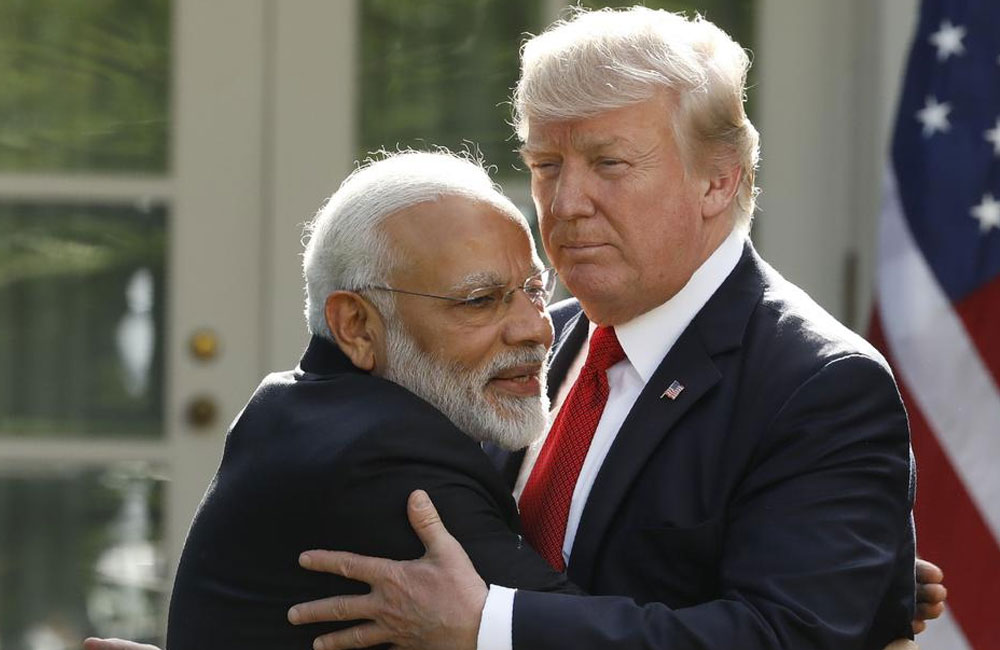
India-US trade deal stalled after Modi did not call Trump, Lutnick says
India’s trade pact with the United States was delayed because Prime Minister Narendra Modi did not make a telephone call to President Donald Trump to close a deal they were negotiating, Commerce Secretary Howard Lutnick said on Friday.
The trade talks fell apart last year and Trump doubled tariffs on Indian goods in August to 50%, the world’s highest rate, including a levy of 25% in retaliation for India’s purchases of Russian oil.
“It’s all set up and you have got to have Modi call the President. And they were uncomfortable doing it,” Lutnick said in an interview on the All-In podcast, a U.S. show by four venture capitalists that focuses on business and technology.
“So Modi didn’t call.”
The comments came after Trump stepped up the pressure for talks with a warning this week that tariffs could rise further unless India curbs its Russian oil imports.
That step pushed the Indian rupee to a record low and spooked investors waiting for progress in two-way negotiations for a trade deal that remains elusive.
India still seeks a tariff rate between Washington’s offers to Britain and Vietnam that had formerly been agreed but the offer has expired, Lutnick added.
India’s trade ministry did not immediately respond to an e-mailed request for comment on Lutnick’s remarks.
New Delhi and Washington were very close to a trade deal last year but a communication breakdown led to the collapse of any potential pact, Reuters reported.
It cited an Indian government official involved in the talks as saying that Modi could not have called Trump, for fear that a one-sided conversation would put him on the spot.
(Source:Adaderana.lk)
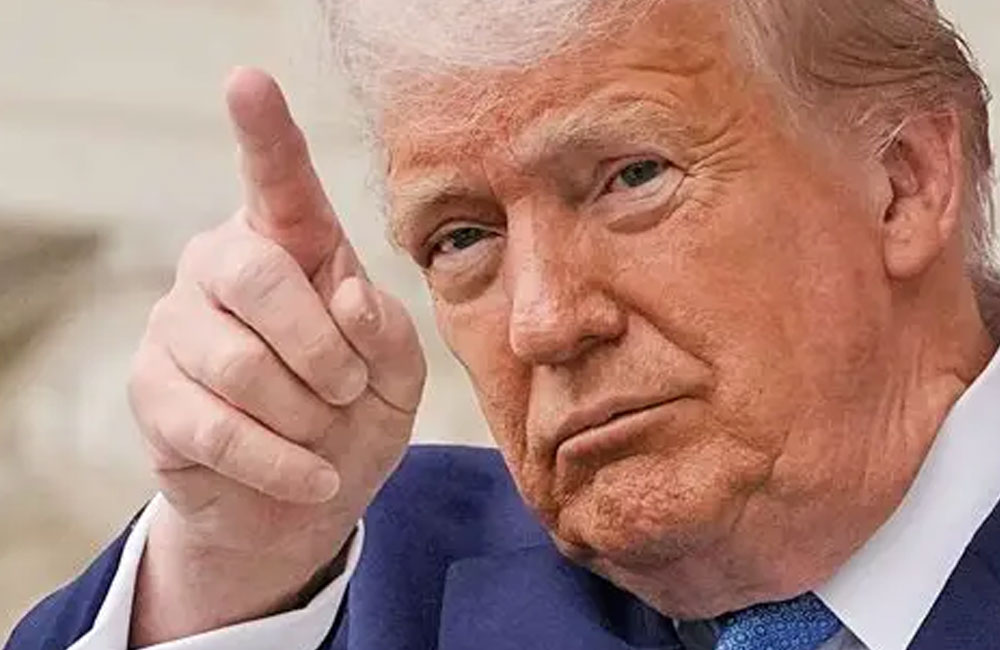
Nobel Institute says Peace Prize cannot be transferred after Machado suggestion
The Norwegian Nobel Institute said the Nobel Peace Prize cannot be transferred, shared, or revoked, following remarks by Venezuelan opposition leader María Corina Machado suggesting she might give her 2025 award to U.S. President Donald Trump.
In a statement, the institute said the decision to award a Nobel Prize is final and permanent, citing the statutes of the Nobel Foundation, which do not allow appeals.
The organization also noted that committees awarding the prizes do not comment on the actions or statements of laureates after receiving awards.
“Once a Nobel Prize is announced, it cannot be revoked, shared or transferred to others,” the Norwegian Nobel Committee and the Norwegian Nobel Institute said on Friday. “The decision is final and stands for all time.”
On Monday, Machado, speaking to Sean Hannity on Fox News, said that presenting the prize to Trump would be an act of gratitude from the Venezuelan people for the removal of Nicolás Maduro, the country’s president, who was captured last week by the United States.
“Did you at any point offer to give him the Nobel Peace Prize?” Hannity asked. “Did that actually happen?”
She responded, “Well, it hasn’t happened yet.”
Trump, who has long expressed interest in winning the prize and has at times linked it to diplomatic achievements, said he would be honored to accept the prize if offered by Machado during a planned meeting in Washington next week.
Machado, a former National Assembly member, was barred from running in Venezuela’s 2024 general election by authorities aligned with Maduro.
She backed a stand‑in candidate who was widely considered to have won the vote, although Maduro claimed victory. Ballot audits by independent observers showed irregularities in the official results.
Source: adaderana.lk
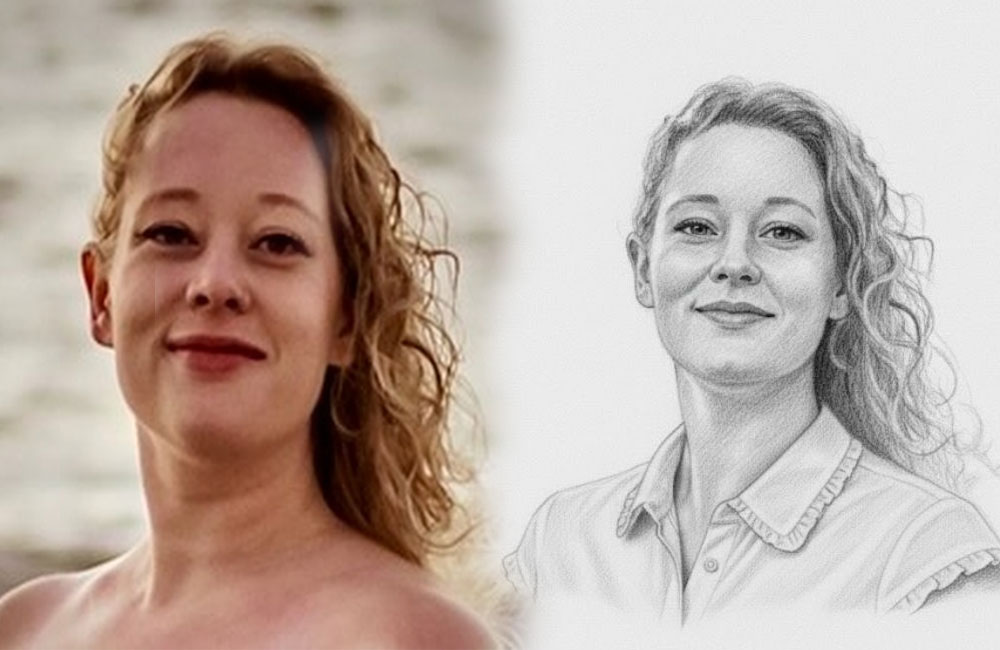
Minneapolis Shooting Victim Identified as Mother and Poet; Protests Erupt Nationwide
Authorities have identified the woman who was shot and killed by a federal immigration agent in Minneapolis as Renee Nicole Good, a 37-year-old mother of three who had only recently moved to the city.
Good was known as an award-winning poet and an amateur guitarist. City leaders said she was present as a legal observer monitoring the activities of Immigration and Customs Enforcement (ICE) at the time of the incident.
However, the Trump administration has described Good as a “domestic terrorist,” a characterization that has drawn strong criticism and intensified public debate surrounding the shooting.Her death has prompted protests in multiple cities across the United States, with demonstrators demanding accountability and carrying placards bearing the message “Justice for Renee.”

Five Arrested for Foreign Job Scam
Five suspects have been arrested by the Special Investigation Unit of the Police Division attached to the Sri Lanka Bureau of Foreign Employment (SLBFE) for allegedly carrying out foreign employment scams using forged documents.
The arrests were made during coordinated raids conducted in Boralesgamuwa, Maharagama, Nittambuwa, and Wattala, according to the SLBFE.
During the operations, authorities seized 10 employment contracts purportedly issued for jobs in Dubai, 27 job application forms, and a computer used to produce fraudulent documentation.
Investigators also recovered a large cache of forged official seals, falsely attributed to principals of government schools, senior executive-grade public officials from several state institutions, and university lecturers.
In addition, fraudulently manufactured educational certificates and school-leaving certificates were among the items taken into custody.
The Bureau stated that investigations are ongoing to identify further individuals linked to the scam network.
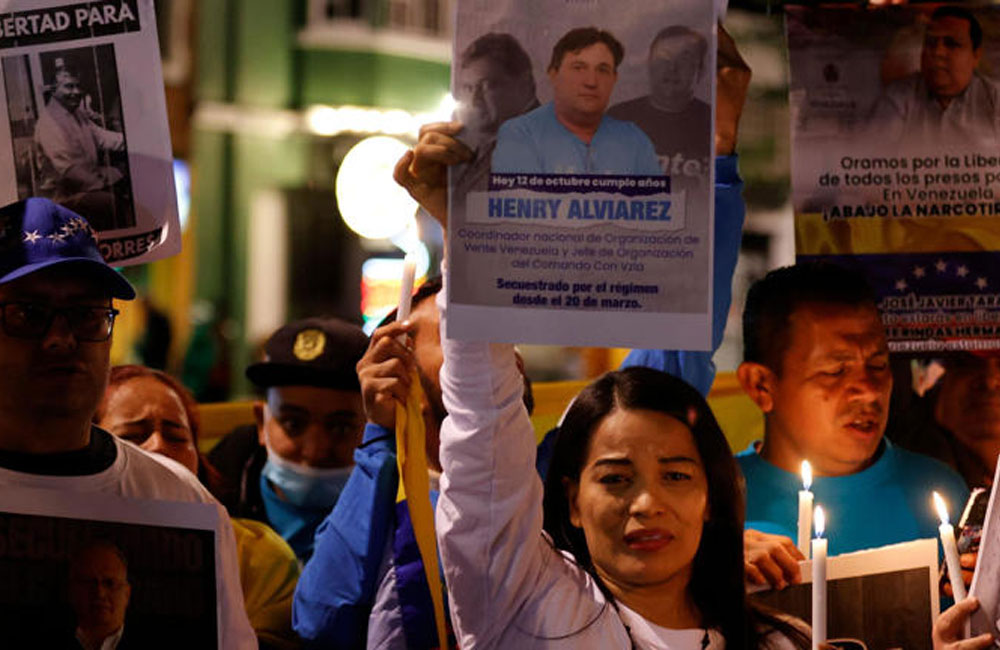
Venezuelan government begins releasing political prisoners
The Venezuelan government has begun releasing detainees considered political prisoners by human rights groups, in what officials described as a goodwill gesture.
Spain’s foreign ministry said five of its nationals, including one dual national, had been released. Among them is thought to be rights activist Rocio San Miguel.
The move comes after the US took Venezuela’s President Nicolas Maduro in a lightning raid on the capital, Caracas, on Saturday, to face drug trafficking charges in New York.
The release of political prisoners in Venezuela has been a long-held US demand, especially during moments of heightened repression around elections or protests.
Jorge Rodriguez, the head of Venezuela’s National Assembly and the brother of its interim president Delcy Rodriguez, announced on state television that “a significant number” would be released immediately, without specifying the number or identity of prisoners being freed.
Hundreds of political prisoners are detained in Venezuelan prisons, with only a handful thought to have been released so far.
Jorge Rodriguez said the interim government was releasing them in the interest of “national unity and peaceful coexistence”.
The release of Ms San Miguel, who is an expert in security, defence and Venezuela’s military was the first freed prisoner to be confirmed. She was arrested at Maiquetia airport, near Caracas, in February 2024.
It was alleged at the time that Ms San Miguel, a vocal critic of Maduro, was involved in a plot to kill the then-president and faced charges of treason, conspiracy and terrorism.
Venezuelan human rights organisations - some of which have members or their founders in jail - welcomed the news with caution.
Despite being a key lieutenant of Maduro, Delcy Rodriguez’s interim administration has appeared willing to co-operate with the US since it took its leader and made sweeping declarations about the South American nation’s future.
About 50 to 80 prisoners are believed to be held at the notorious El Helicoide prison, which US President Donald Trump announced would be closed following Maduro’s capture.
The prison gained international notoriety for detaining alleged political opponents, with reports by human rights groups of torture including beatings and electrocution.
Venezuelan human rights group Provea warned El Helicoide’s anticipated closure should not deflect attention from the other detention sites still running across the country.
Opposition leader and Nobel Peace Prize winner Maria Corina Machado, who has several close allies in prison, has repeatedly demanded releases.
Venezuela’s opposition and human rights groups have said for years the government used detentions to stamp out dissent and silence critics.
Since the widely disputed 2024 election, the opposition claimed legal proceedings against activists, journalists and political adversaries increased.
Attorney General Tarek Saab and others in the government repeatedly denied Venezuela held political prisoners, arguing those detained were arrested for genuine crimes.
(Source:adaderana.lk)

in Four Sri Lankans Living in Poverty, New Survey Reveals Nearly 25% of Sri Lanka’s Population Affected by Poverty
Nearly one in four people in Sri Lanka is living in poverty, according to findings from surveys conducted by the Centre for Poverty Analysis (CEPA), said Dr. Ganeshan Wignarajah, Senior Fellow at ODI Global.
Speaking at the launch of the report titled “Sustaining Transformational Economic Growth in Sri Lanka 2025–2030,” Dr. Wignarajah emphasized that Sri Lanka must undertake wide-ranging reforms across multiple sectors of the economy in order to effectively address the poverty challenge.
The report, jointly supported by the Centre for Poverty Analysis and ODI Global, was prepared by an independent research team and was unveiled recently at a Colombo-based institution.
It presents a policy framework focused on structural reforms and poverty reduction, aimed at supporting Sri Lanka’s post-crisis economic recovery and ensuring long-term, inclusive growth.
Adding to the discussion, Yvette Fernando, former Senior Deputy Governor of the Central Bank of Sri Lanka, highlighted the absence of a coordinated national strategy to drive such reforms.
She noted that while various groups are currently implementing fragmented initiatives—some of which are producing positive outcomes—the lack of central coordination limits their overall impact. Fernando stressed that bringing these efforts under a unified national plan, with proper oversight, monitoring, and accountability, would significantly enhance results.
She further proposed that the government should take the lead by working closely with the private sector, establishing dedicated committees and a commission to oversee the implementation of a centralized national action plan, a recommendation also outlined in the report.
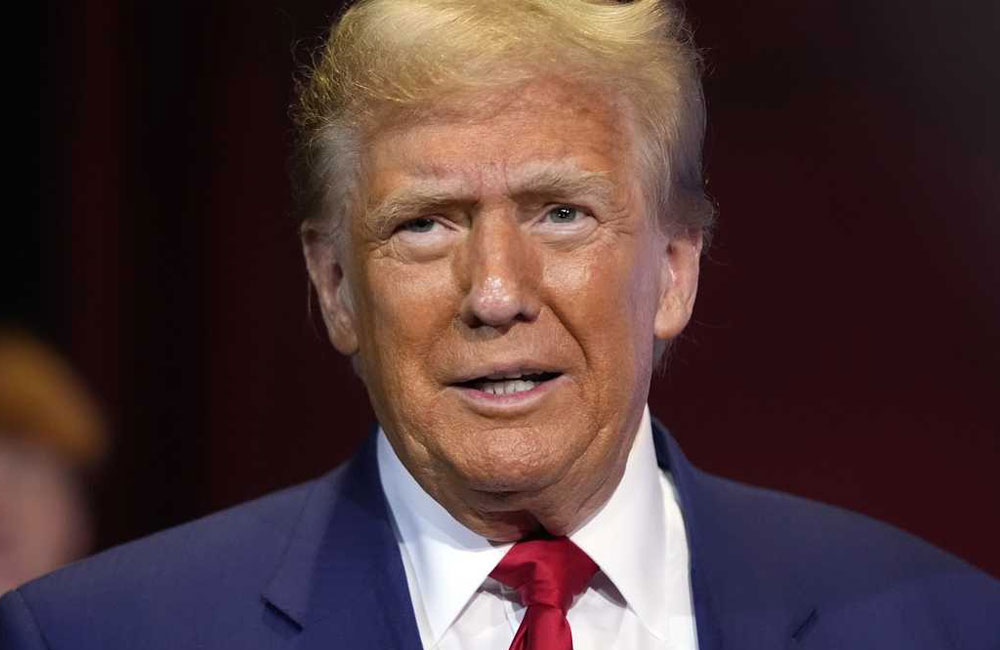
Trump says he will meet with Venezuela’s Machado next week
U.S. President Donald Trump indicated on Thursday that Venezuelan opposition leader Maria Corina Machado was coming to Washington next week.
During an interview on Fox News’ “Hannity” program, Trump was asked if he plans to meet with Machado following U.S. strikes on Venezuela that resulted in the capture of its president Nicolas Maduro.
“Well, I understand she’s coming in next week sometime, and I look forward to saying hello to her,” Trump responded.
The White House did not immediately respond when reached for additional details on the meeting.
This will be Trump’s first meeting with Machado, who said earlier this week that she hadn’t spoken to the U.S. leader since she won the Nobel Peace Prize in October.
The future governance of the South American country remains in doubt. Trump over the weekend dismissed the idea of working with Machado, saying “she doesn’t have the support within or the respect within the country.”
Trump told Fox News that it will take time for the South American country, currently led by interim acting President Delcy Rodriguez, to get to a place where it can hold elections.
“We have to rebuild the country. They couldn’t have an election,” he said. “They wouldn’t even know how to have an election right now.”
Venezuela, an OPEC member, is one of the biggest producers of oil. Its industry has become focal point of the Trump administration with a senior official telling Reuters that oil sales to the United States will start immediately with an initial shipment of approximately 30 million to 50 million barrels and will continue indefinitely.
Trump said he will meet with oil executives at the White House on Friday. Those oil companies, according to the president, will play a key role in rebuilding Venezuela’s oil industry.
“They’re going to rebuild the whole oil infrastructure. They’re going to spend at least $100 billion and it’s an unbelievable oil that they have, and an unbelievable quality of oil and amount of oil,” he said.
(Source:adaderana.lk)
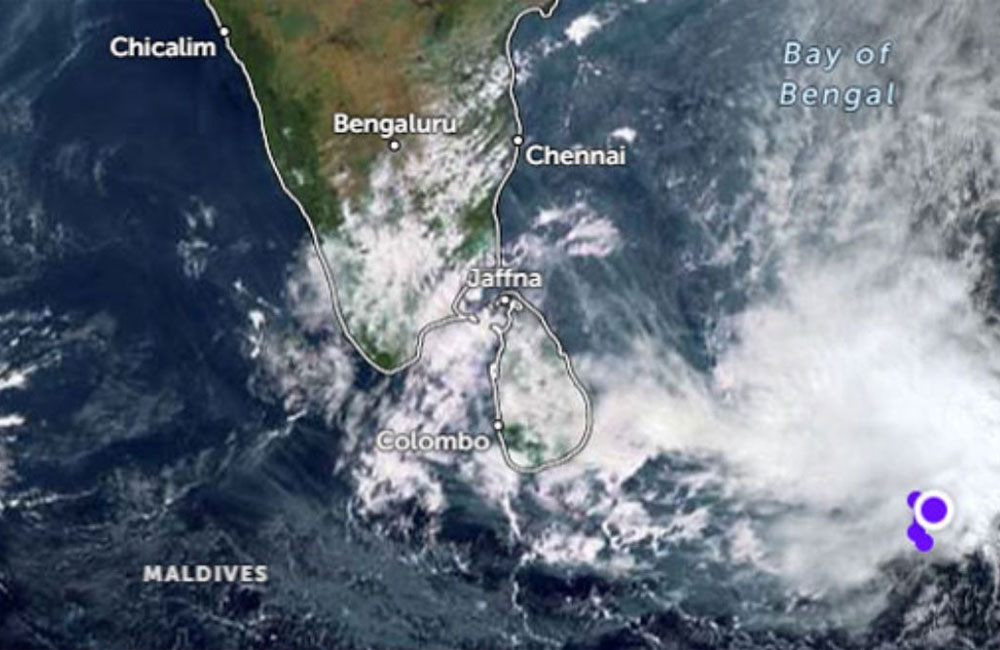
Depression over Bay of Bengal likely to cross Mullaitivu Coast; heavy rain and winds expected
The Department of Meteorology reports that the depression over the southwest Bay of Bengal was located about 20 km east of Mullaitivu at 11:30 a.m. today (10).
The system is expected to cross the Mullaitivu coast later this evening and is likely to weaken into a low-pressure area by tomorrow.
Very strong winds of about 50–60 km/h, gusting up to 70 km/h, can be expected at times over the Northern Province, the Met. Department said, issuing a strong wind advisory for the next 24 hours.
Strong winds of about 40–50 km/h may occur at times over the North Western Province and in the Matale, Trincomalee, and Nuwara Eliya districts, it said.
Cloudy skies are expected over the northern half of the island. Showers or thundershowers will occur at times in the Northern Province and in the Puttalam, Anuradhapura, and Trincomalee districts, with a heavy rain advisory in effect for the next 24 hours.
Heavy rainfall above 100 mm is likely at some locations in the Northern Province, it added

Ampara Records Highest Rainfall as Several Reservoirs Continue to Spill
The highest amount of rainfall recorded over the last 24 hours was in the Ampara area, which received 38 millimetres of rain, according to Director of Irrigation (Hydrology and Disaster Management) Engineer L. S. Sooriyabandara.He said that rainfall in the majority of other regions remained below 10 millimetres, resulting in no notable increase in river water levels across the country.
However, Sooriyabandara noted that 28 of Sri Lanka’s 73 major reservoirs are still overflowing, along with 22 medium-scale tanks.He added that while water discharges from the Yan Oya and Deduru Oya reservoirs have been significantly stepped up, no river basin is currently facing hazardous discharge levels.
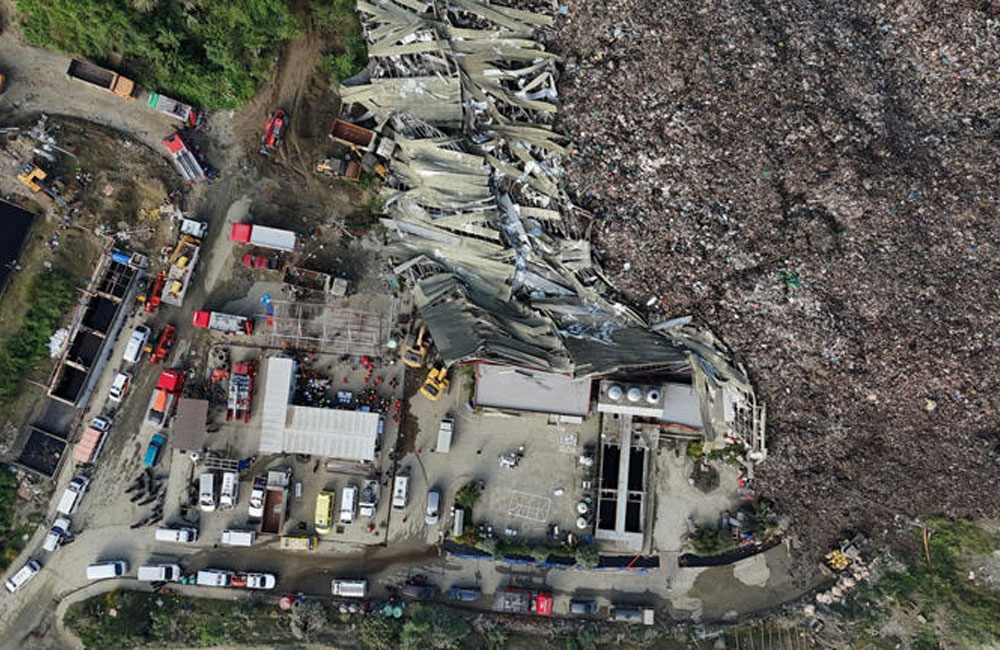
Landfill collapse kills 1 and leaves at least 38 missing in Philippine
An avalanche of garbage and debris buried or trapped workers in low-slung buildings at a landfill in the Philippines, killing one person, injuring a dozen and leaving 38 others missing, officials said Friday.
Dozens of rescuers retrieved 13 people alive overnight and were searching for the missing still trapped after the mountain of garbage, earth and debris collapsed on them Thursday afternoon in the village of Binaliw in Cebu city, officials and police said. Landfill workers were among those affected, but it’s not clear if there were neighboring residents or others involved as well.
One of those rescued, a female landfill worker, died while being brought to a hospital, regional police director Brig. Gen. Roderick Maranan told The Associated Press, adding the rest survived with injuries and were hospitalized.
Jaylord Antigua, a 31-year-old office worker in the landfill, said the collapse of the mountain of garbage unfolded rapidly without warning and in good weather. The avalanche of rubbish destroyed his office, where he managed to extricate himself with bruises in his face and arms by crawling under the rubble and debris.
“I saw a light and crawled toward it in a hurry because I feared there will be more landslides,” Antigua told The Associated Press. “It was traumatic. I feared that it was my end so this is my second life.”
Search and rescue efforts were continuing for 38 missing, Cebu Mayor Nestor Archival and the Office of Civil Defense said Friday.
“All response teams remain fully engaged in search and retrieval efforts to locate the remaining missing persons with strict adherence to safety protocols,” Archival said in a statement posted on Facebook.
“The city government assures the public and the families of those affected that all necessary measures are being taken to ensure safety, transparency, accountability and compassionate assistance as operations continue,” Archival said.
Pictures released by authorities showed rescuers with earth-moving equipment scouring a building devastated by the massive slide with its twisted tin roofs and iron beams.
Relatives waited in anguish as the search and rescue proceeded. A woman wept openly and asked the rescuers to speed up the search.
Authorities and officials at the waste management facility, which has 110 employees, were to hold an emergency meeting Friday, Archival said.
One of the buildings hit by the wall of garbage that cascaded down in the landfill was a warehouse where workers separated recyclable waste and rubbish, Maranan said, adding that it remains unclear if nearby houses were also affected.
Such landfills and open dumpsites have long been a source of safety and health concerns in many cities and towns in the Philippines, especially in areas close to poor communities, where residents scavenge for junk and leftover food in the garbage heaps.
In July 2000, a huge mound of garbage in a dumpsite in a shantytown in suburban Quezon City in metropolitan Manila collapsed after days of stormy weather and the avalanche also ignited a fire.
The disaster left more than 200 people dead and many more missing, damaged scores of shanties and prompted the enactment of a law, which required the closure of illegal dumpsites and better waste management by authorities.
(Source:adaderana.lk)

Badulla District Schools to Close Early Amid Adverse Weather Warnings
All schools operating within Divisional Secretariat areas of the Badulla District have been directed to close early, with students to be released by 11.00 a.m. today (09).
The move comes after the Department of Meteorology issued updated weather forecasts indicating unfavourable conditions, alongside a special landslide warning released by the National Building Research Organisation (NBRO).
Education and local authorities say the early closure is a precautionary measure aimed at ensuring the safety of students and staff as heavy rainfall and potential landslide risks continue to pose a threat in the district.
Page 18 of 663